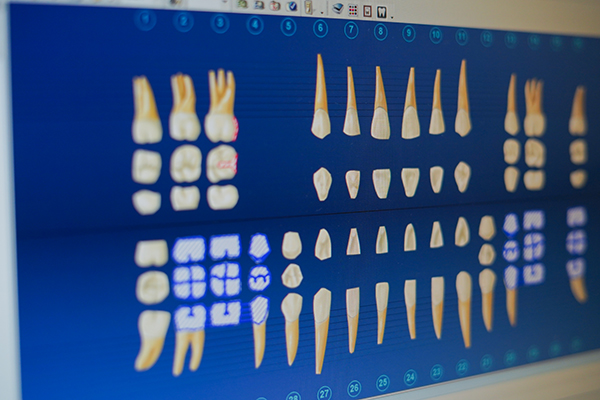When it comes to replacing a lost tooth, dental implants have become a popular option for many people. Dental implants are considered to be a safe and reliable dental procedure that can help restore a person’s smile and confidence. However, many people still wonder how safe a dental implant really is in the place of a lost tooth. In this blog post, we will discuss the safety of dental implants, and how they compare to other tooth replacement options.
What is a Dental Implant?
A dental implant is a tooth replacement option that involves placing a metal screw into your jawbone, which then acts as an anchor for a replacement tooth. This procedure is typically used to replace a lost tooth or to support a dental bridge or denture. Dental implants provide a natural-looking and permanent solution for replacing a lost tooth, offering a secure and comfortable fit.
Dental implants are designed to look, feel, and function just like a real tooth. They are made from titanium, a biocompatible material that integrates easily with the jawbone. The implant is placed directly in the jawbone and bonds with it to create a solid foundation for the replacement tooth. This ensures that the new tooth remains securely in place, restoring normal function and aesthetics. The replacement tooth is then attached to the implant and functions like a real tooth, allowing you to eat, speak, and smile with confidence.
If you have lost a tooth due to injury, decay, or periodontal disease, a dental implant can be used to replace it. The implant serves as an artificial root, providing the necessary support for the replacement tooth. This means you can have a fully functional smile without having to wear removable dentures or rely on bridges. By replacing your lost tooth with an implant, you can also prevent bone loss and maintain facial structure in the area where your lost tooth was.
Are Dental Implants Safe?
When considering a tooth implant, it is important to consider the safety of the procedure. Dental implants are generally considered to be a safe and successful procedure for replacing missing teeth. According to the American Academy of Implant Dentistry (AAID), over 3 million Americans currently have dental implants, and that number is growing every year.
Dental implants are generally considered to be one of the most successful procedures in dentistry, with a success rate of 95%. This means that after five years, 95% of dental implants are still in place and functioning properly. This success rate can increase to 98-99% when proper placement technique and aftercare maintenance is followed.
Overall, dental implants are a safe and effective option for replacing missing teeth and can provide excellent long-term results. However, it is important to note that not everyone is a good candidate for a dental implant. If you are considering a tooth implant, it is important to discuss your options with your dentist to determine if this procedure is right for you.
Benefits of Getting a Dental Implant in the Place of a Lost Tooth
Other than being a safe option for replacing a lost tooth, dental implants offer many other benefits including:
– Improved Appearance: A dental implant can provide a more natural-looking result than other tooth replacement options.
– Increased Durability: Dental implants are designed to last a lifetime with proper care and maintenance. They can withstand the same amount of chewing pressure as natural teeth, making them a great long-term solution for missing teeth.
– Improved Oral Health: Dental implants don’t require any extra steps for cleaning, like brushing and flossing around a false tooth or bridge. Plus, they help prevent other teeth from shifting out of place, which can cause additional oral health problems.
– Better Comfort: Since dental implants are permanently anchored into the jawbone, they don’t need to be removed for cleaning or sleeping like dentures. They are also more comfortable than bridges, which rest on top of the gums.
– Lower Risk of Gum Disease: Without the presence of a gap where bacteria can accumulate, there is less risk of gum disease when you have a dental implant in place.


Recent Comments